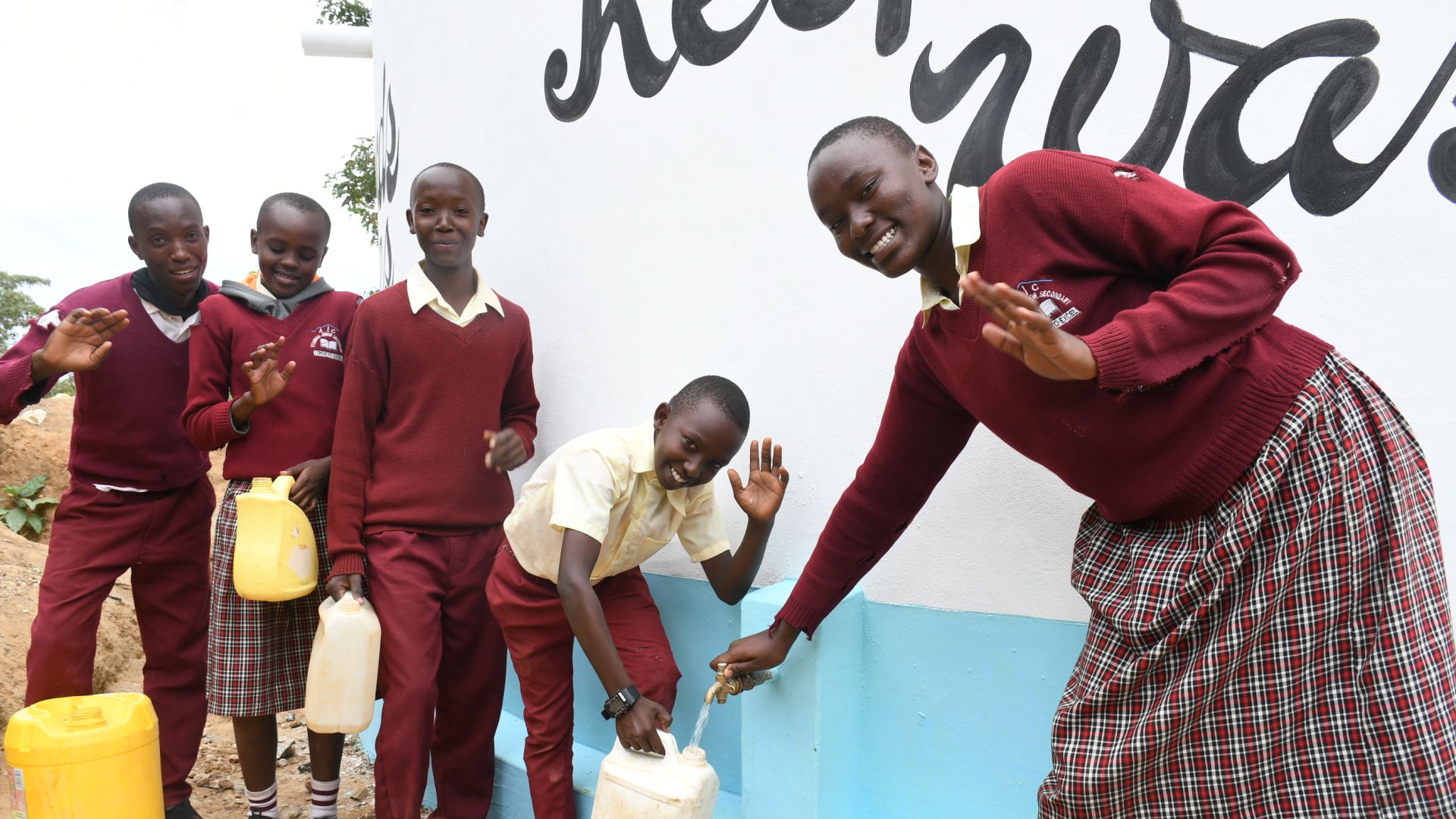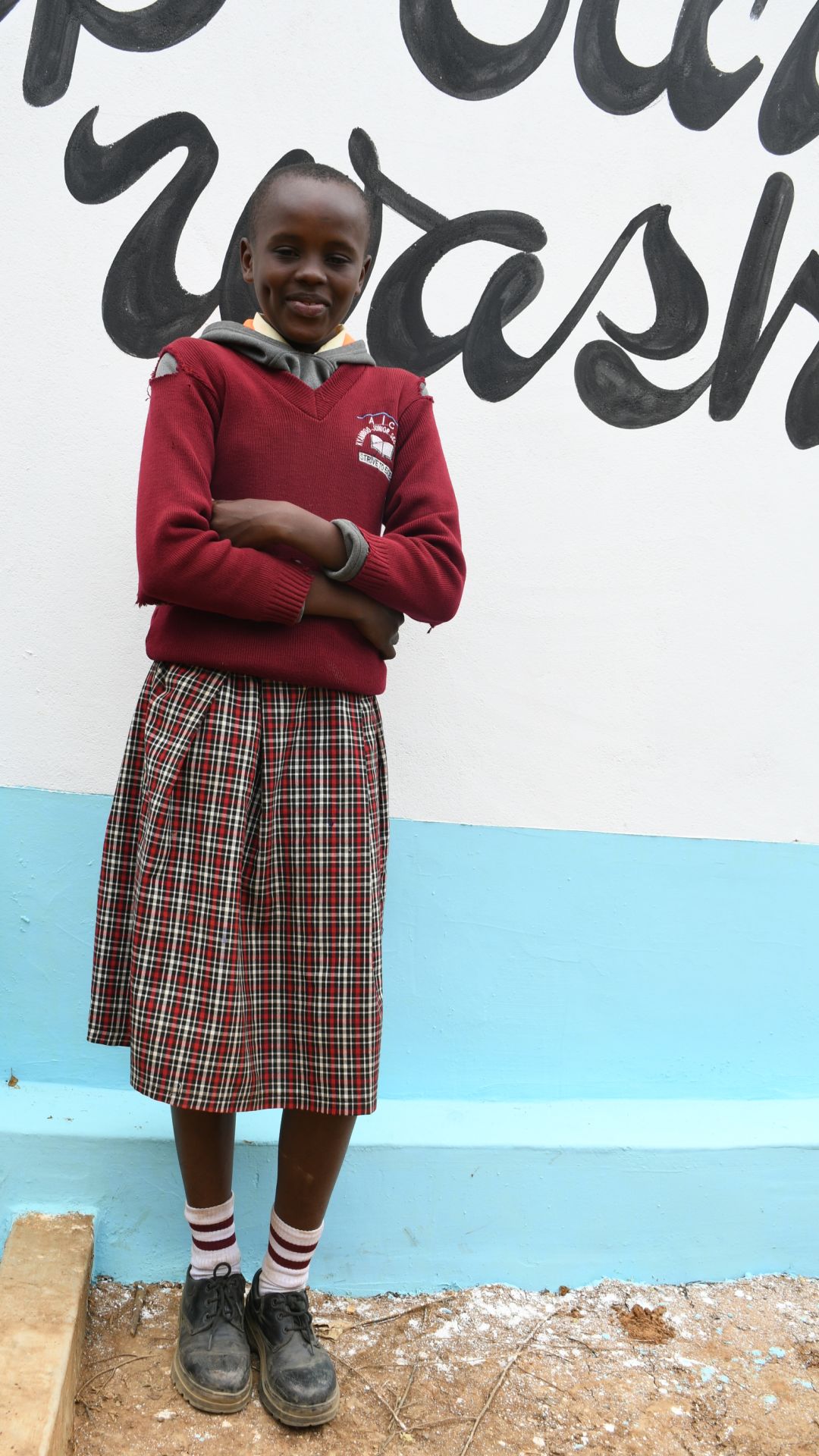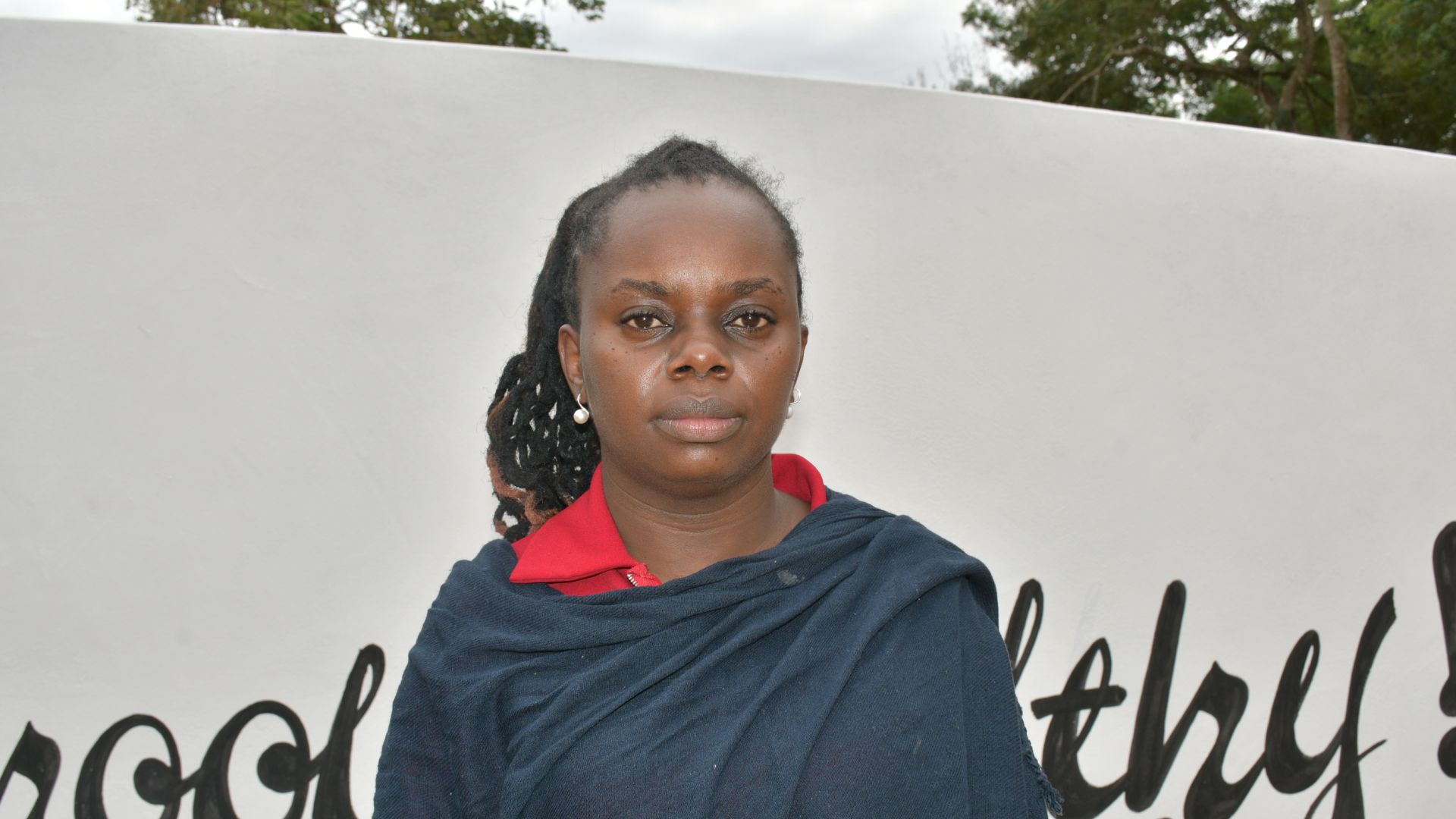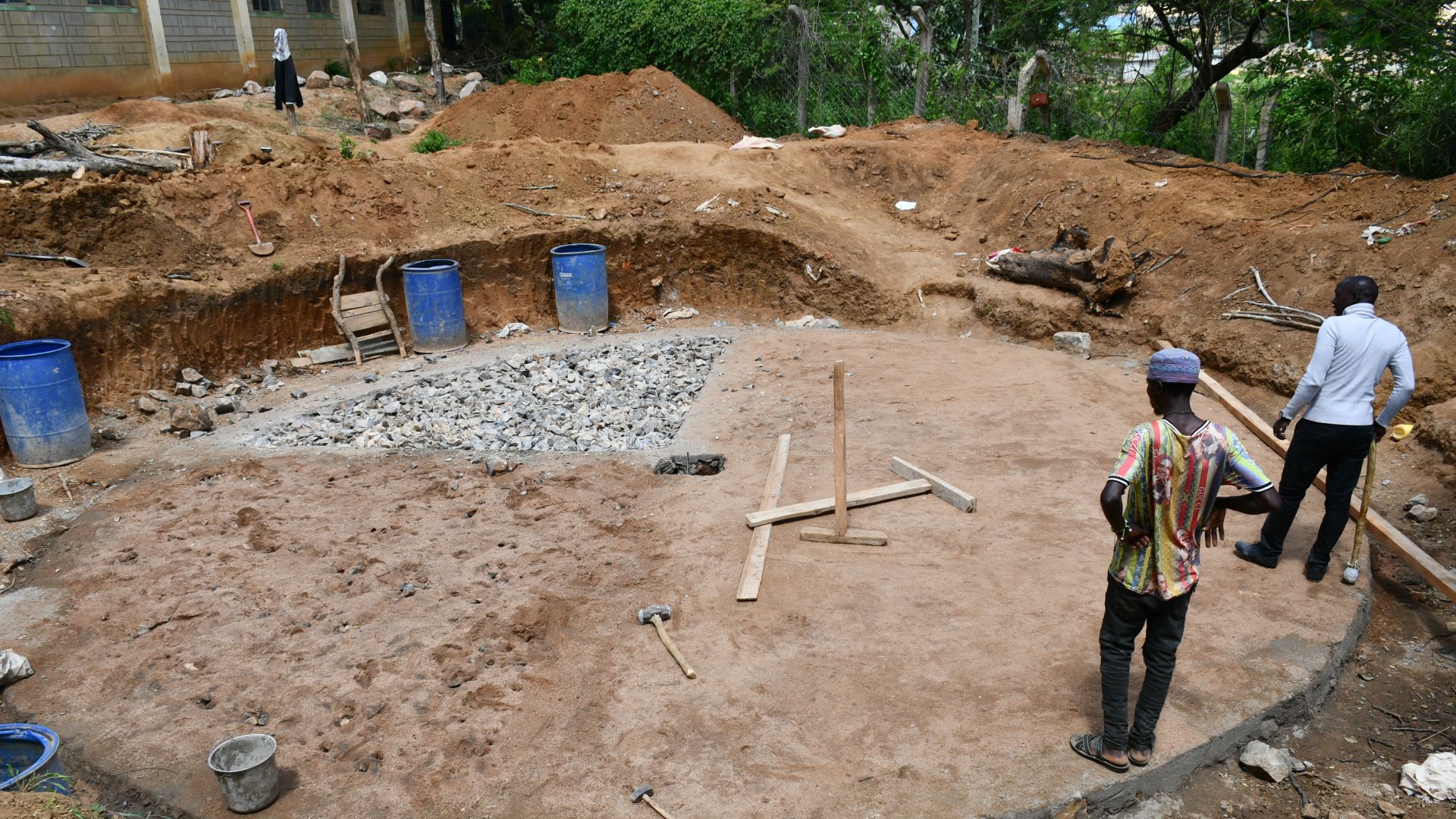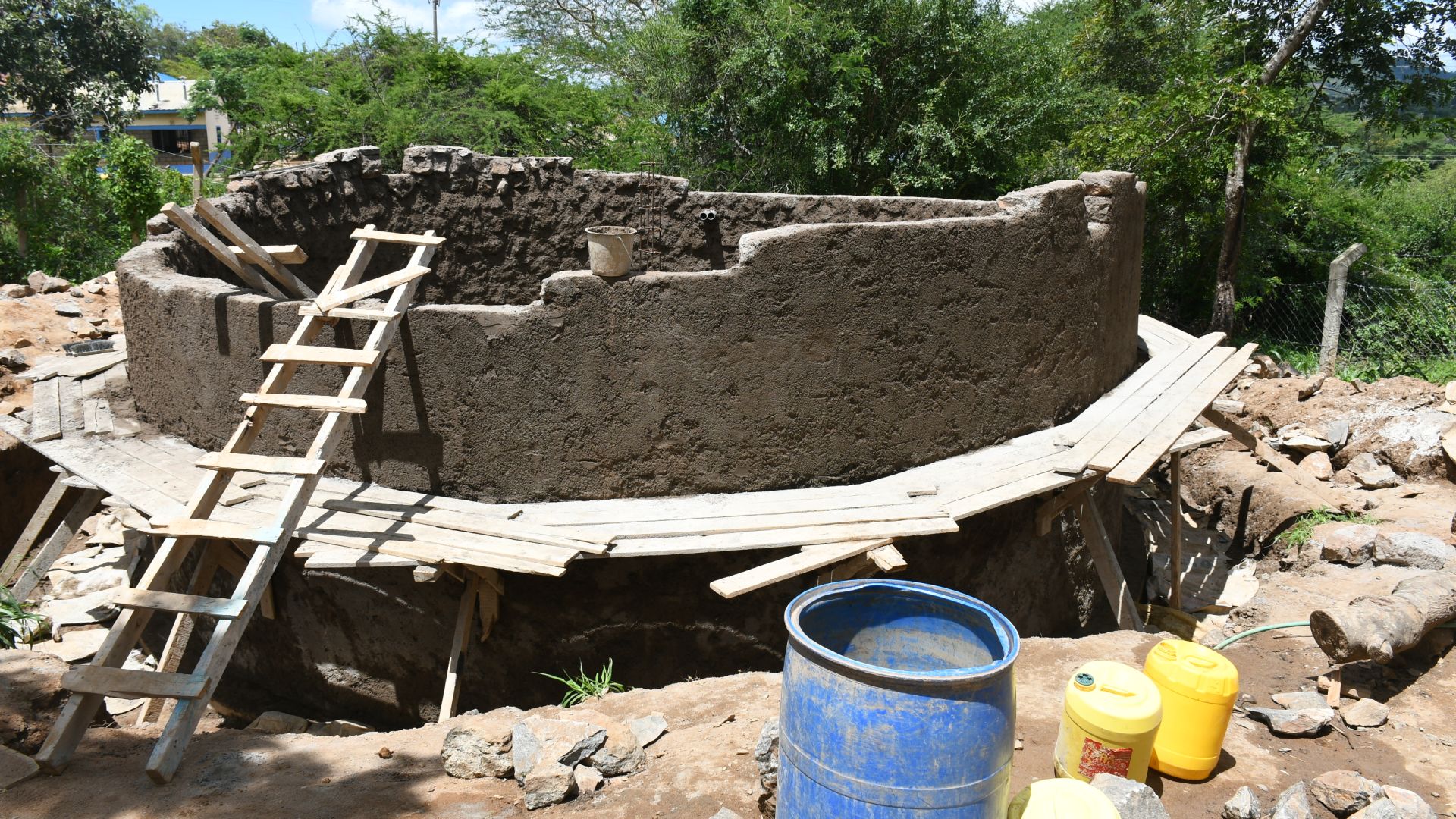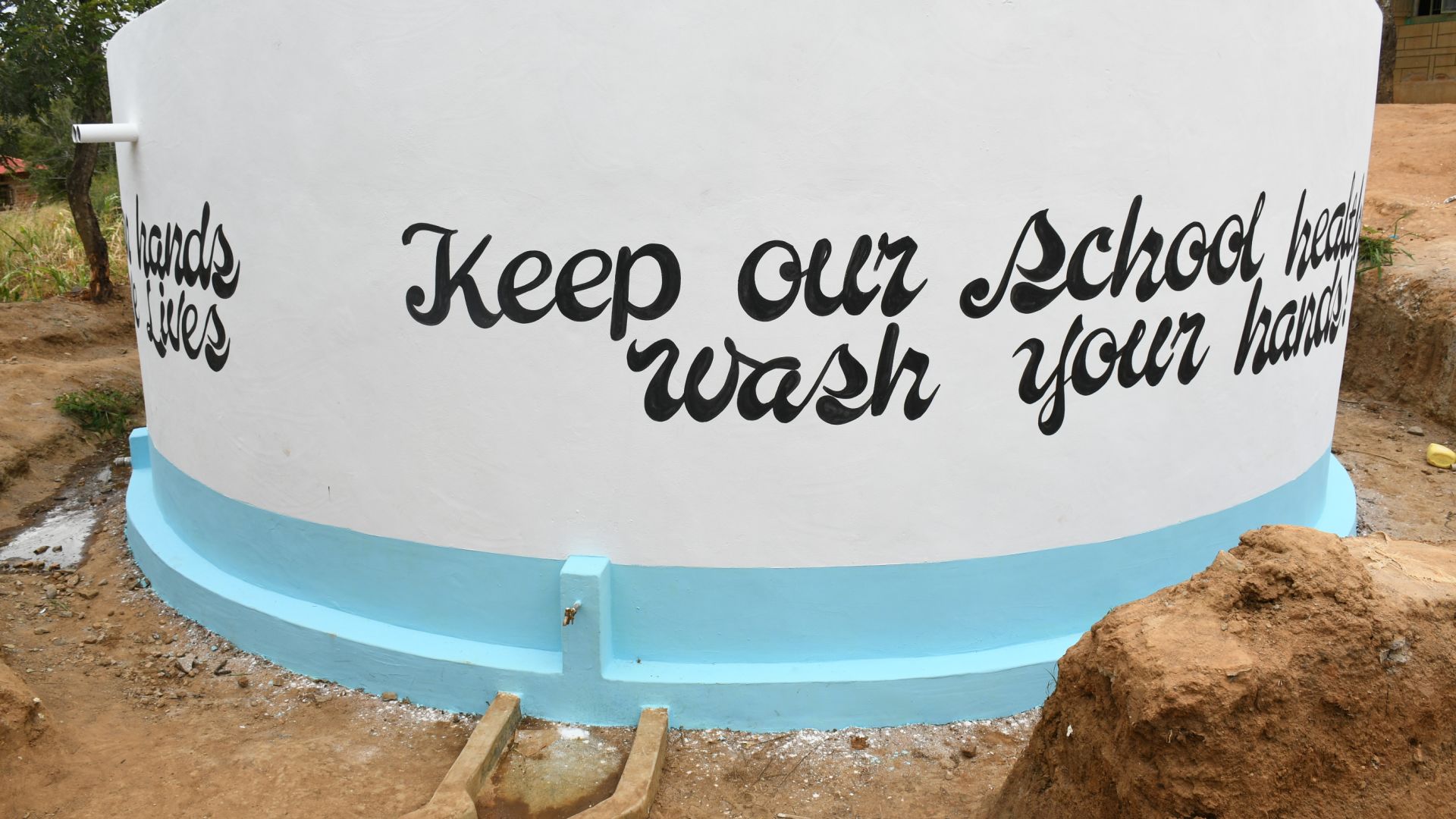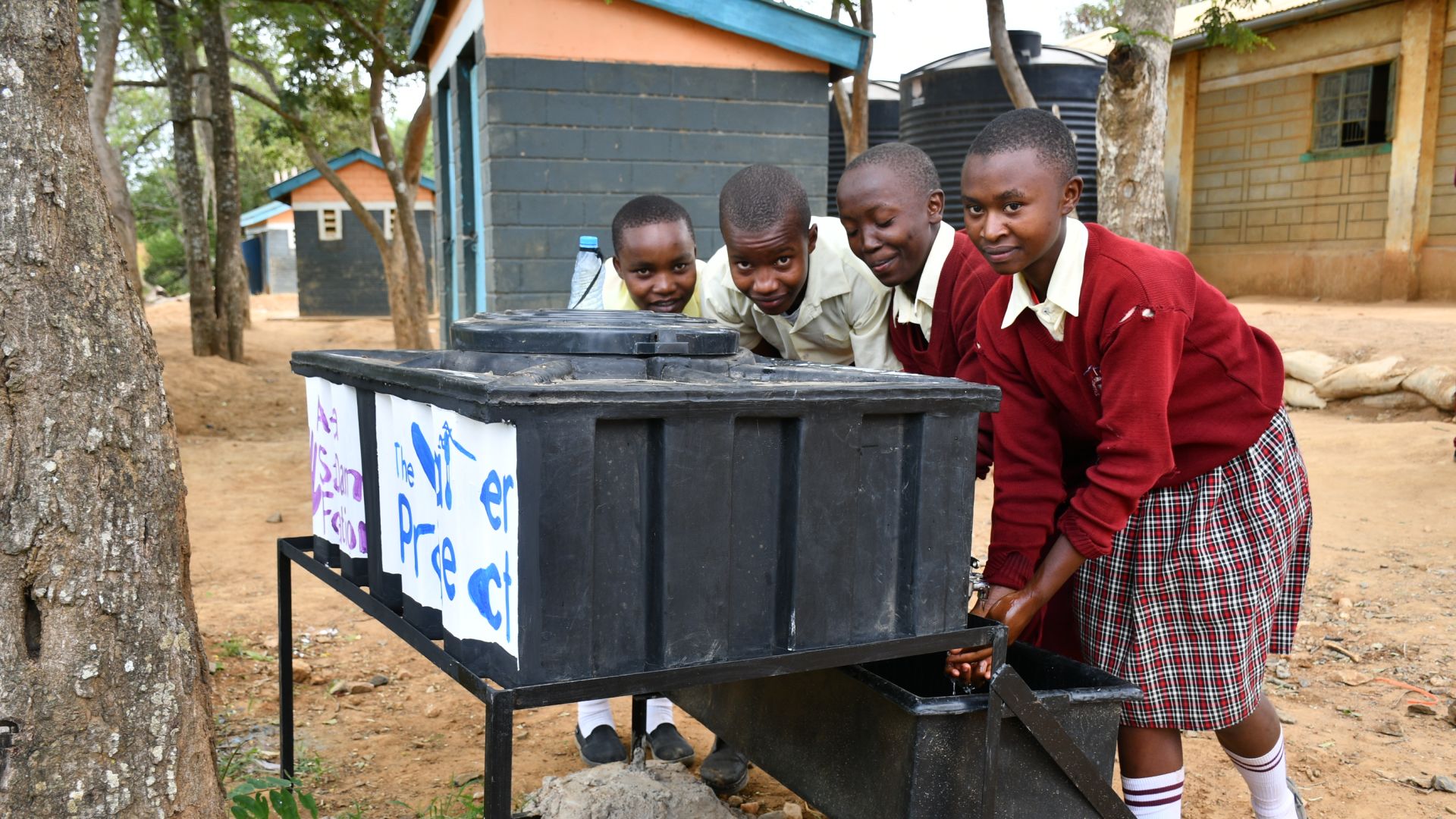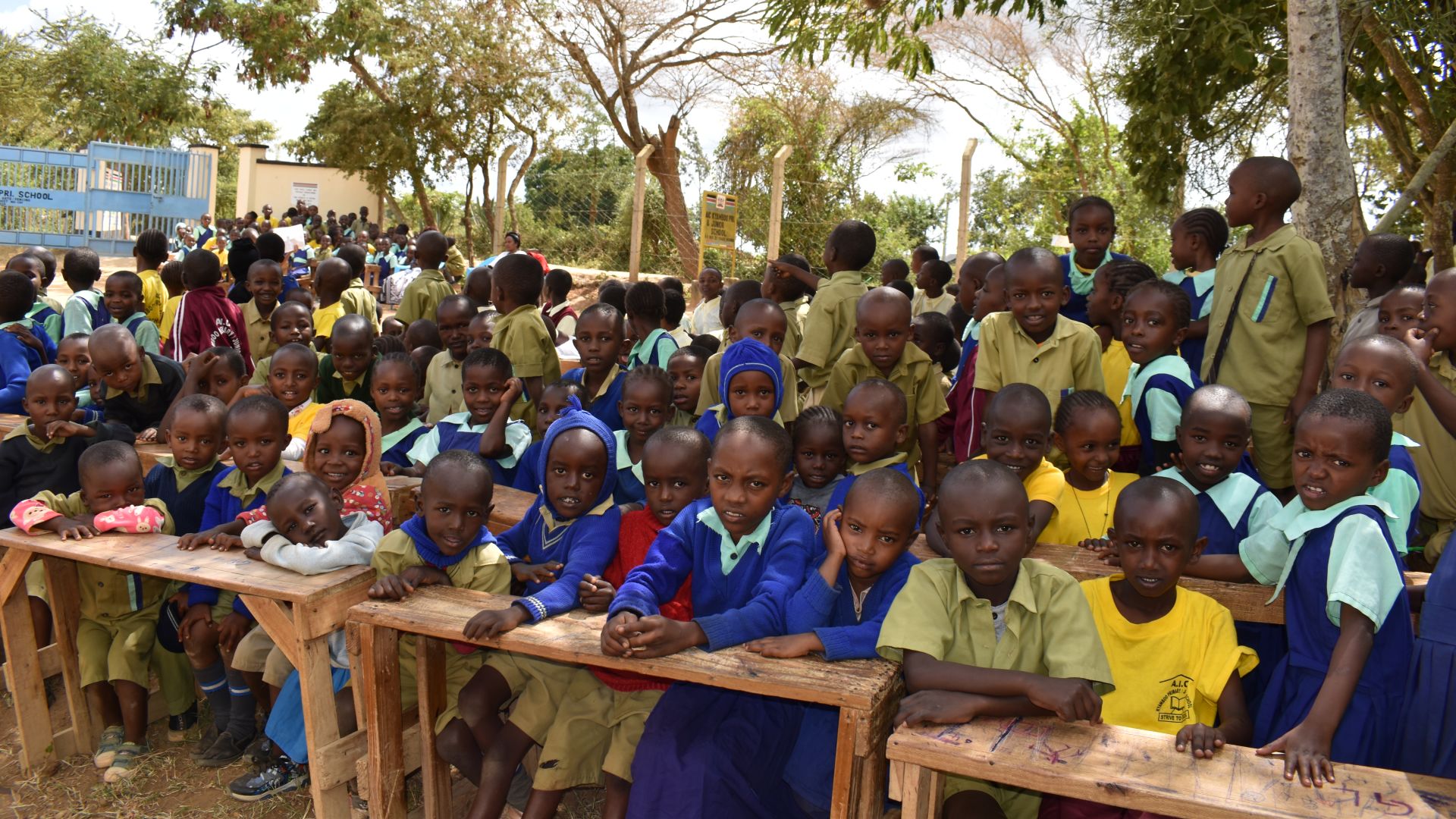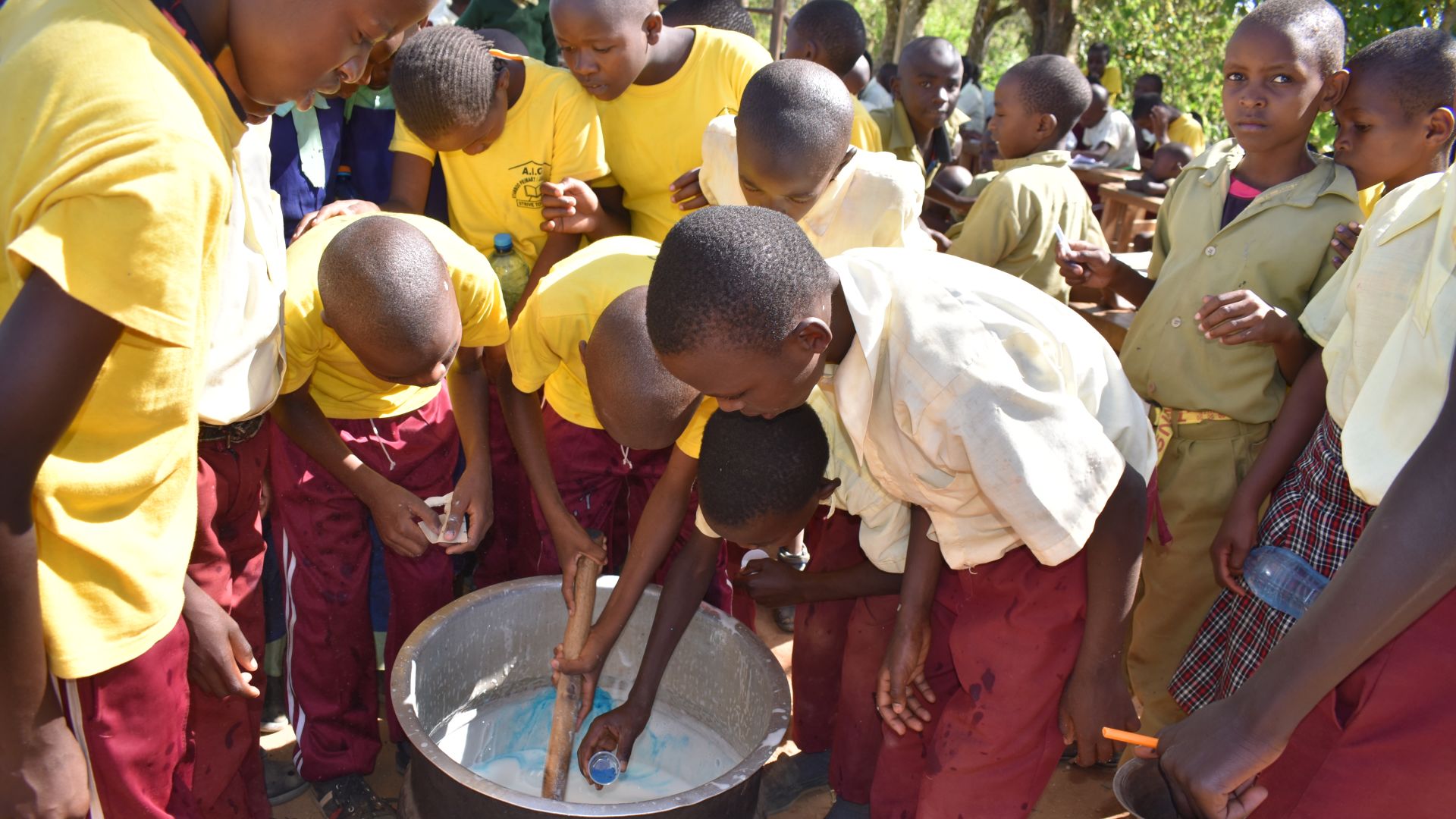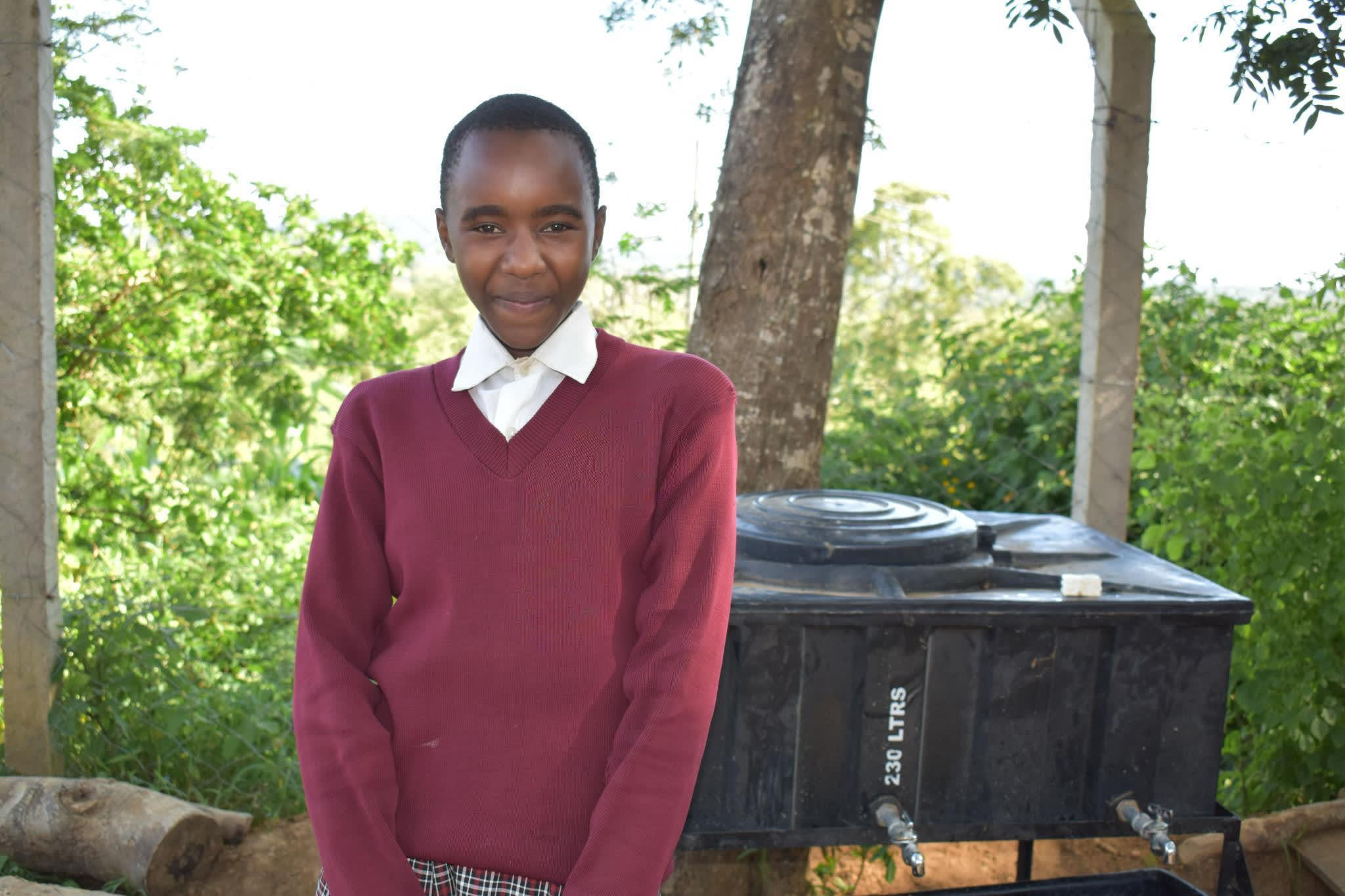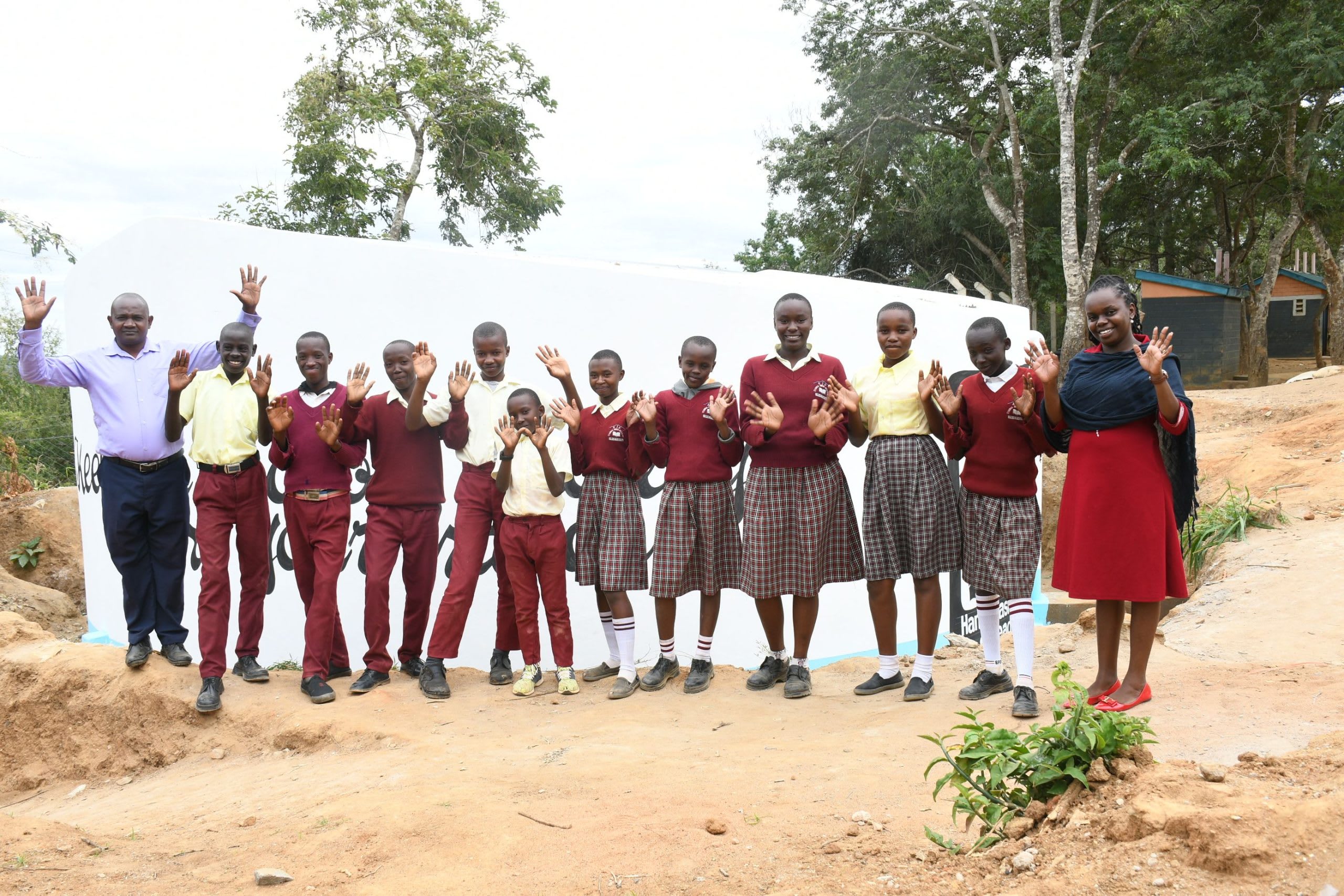At Kyamboo Primary School, 322 students and 15 teachers live without reliable access to clean water every day. Although the school has rain tanks on campus, those tanks are too small, so they often run dry, leaving everyone scrambling for water.

The school's rainwater harvesting tank.
Field Officer Jefferson Mutie shared, "Water from the rainwater tank is safe and poses no health threats to the pupils. Drinking water from unknown sources poses significant health risks, as it contains harmful pathogens, toxins, or pollutants that lead to serious illnesses, including dysentery and long-term health issues."
46-year-old teacher David Mutua sees his students experience the side effects of their school's water crisis daily.

David Mutua.
"The lack of water at our school's source is primarily due to insufficient rainfall and the strain of a growing population. As the demand increases and the supply dwindles, our pupils face the challenges of limited access to clean water, highlighting the urgent need for sustainable water management solutions," David Mutua shared.

Students wait in a long line, hopeful they'll get a chance to quench their thirst.
"The lack of water at school significantly impacts pupils, affecting their ability to stay hydrated and focus in class. It also leads to increased absenteeism due to waterborne illnesses and undermines their overall health and well-being, which in turn hampers their academic performance and personal development. The teacher also has to purchase water for their use at the school, as the available water is used sparingly for cooking and drinking by the pupils," he continued.
Students and staff alike search for water when the rain tanks run dry. The time spent trying to find a solution to their water crisis is time taken from teaching and learning, putting the students further and further behind. The water they do find is often contaminated, making them too sick to learn or teach.

An alternate source, open to contamination.
With access to safe, reliable water, teachers like David can give their students the best educational opportunities possible, giving them a sturdy foundation to build their dreams.

Students in class.
"Water is fundamental to everything we do in the classroom. It supports pupils' health, helps maintain their concentration, and keeps them engaged. As a teacher, I see firsthand how essential water is for fostering an environment where students can thrive and succeed. Without it, our efforts to educate and inspire are greatly hindered," David continued.
"With the availability of a reliable water source through our rainwater harvesting system, the school will advance its development plans, including enhancing landscaping, expanding agricultural education programs, and supporting new recreational facilities. Access to consistent water will be crucial in realizing these projects and ensuring their long-term success," concluded Jefferson, field officer.
Steps Toward a Solution
Our technical experts worked with the local community to identify the most effective solution to their water crisis. Together, they decided to construct a rainwater harvesting system.
Rainwater Harvesting System
A rainwater collection system consists of gutters that channel rainwater effectively into large holding tanks. Attached to buildings with clean, suitable roofing, these systems are sized according to the population and rainfall patterns. Water can be stored for months, allowing for easy treatment and access. Learn more here!
Handwashing Stations
Alongside each water source, we install two gravity-fed handwashing stations, enabling everyone at the school to wash their hands. Handwashing is crucial for preventing water-related illnesses within the school and community. Student “health clubs” maintain the stations, fill them with water, and supply them with soap, which we often teach them how to make.
School Education & Ownership
Hygiene and sanitation training are integral to our water projects. Training is tailored to each school's specific needs and includes key topics such as proper water handling, improved hygiene practices, disease transmission prevention, and care of the new water point.
To ensure a lasting impact, we support forming a student health club composed of elected student representatives and a teacher. These clubs promote hygiene practices schoolwide and keep handwashing stations well-stocked. This student-led model encourages a sense of ownership and responsibility.
Safe water and improved hygiene habits foster a healthier future for the entire school.

 Rainwater Catchment
Rainwater Catchment
 Rehabilitation Project
Rehabilitation Project












